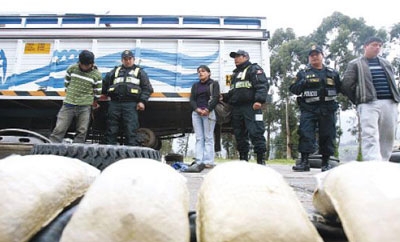The Bolivian government has admitted violent crime is rising and that the security forces are ill-equipped to deal with it, evidence that the presence of transnational crime and increasing drug trafficking is taking its toll.
Interior Minister Carlos Romero said while Bolivia’s murder rate of 11 per 100,000 people was still far off rates in Central America, it was “three times higher than [neighboring] countries that have had success in citizen security policies, particularly the Chilean experience,” reported EFE.
Crime rates have risen in recent years, said the minister, and police were understaffed and under equipped. There was one police officer for every 301 members of the population, when the ideal rate was one per 250, said Romero, adding that there were 34 agents for every one police vehicle and 17 for every motorcycle, limiting patrol capabilities and mobility.
The government is implementing a new security plan which will see “special interventions” of more than a thousand police officers and dozens of prosecutors in cities with the highest crime rates, such as Santa Cruz and Cochabamba.
InSight Crime Analysis
There are a variety of factors contributing to a deteriorating security situation in Bolivia, historically one of South America’s safer countries. One of the world’s top three cocaine-producing nations, the trafficking of drugs has seen increasing involvement of international criminal actors, particularly Brazil’s powerful prison gangs. It is estimated 80 percent of Bolivian cocaine ends up in Brazil, and a significant amount of Peruvian cocaine also travels through the country, with the eastern city of Santa Cruz now a regional hub for drug traffickers. Coca base seizures doubled between 2006 and 2011, while seizures of cocaine hydrochloride more than quadrupled.
Meanwhile the Bolivian security forces and judicial system are notoriously weak and corrupt, and have lost institutional support previously given by the United States. The US cut off the last of its counter-narcotics ties when it closed its Bolivian anti-drugs office in May, the final nail in the coffin of a relationship that had been steadily deteriorating since the expulsion of the Drug Enforcement Adminstration in 2008.

